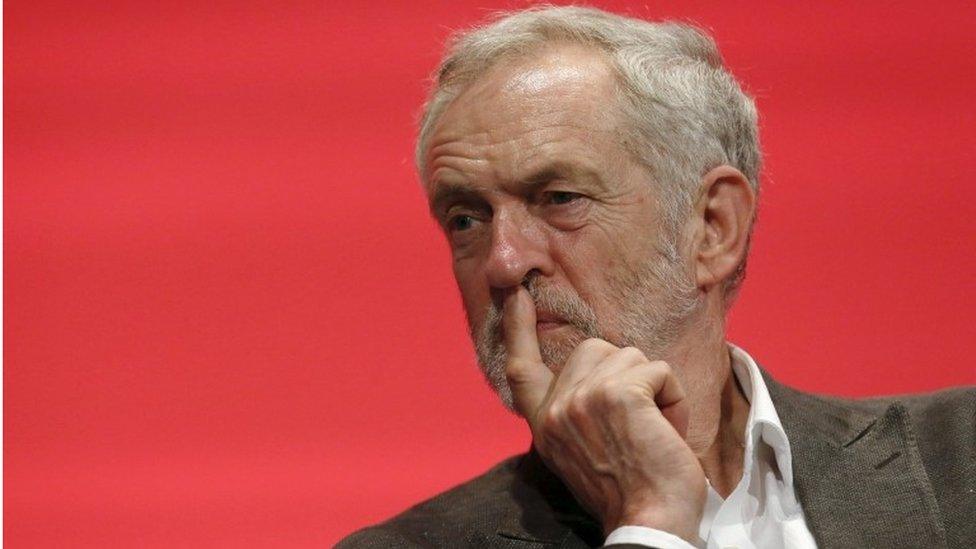Corbynomics' Thatcher moment
- Published
- comments

One criticism levelled at Jeremy Corbyn and his shadow chancellor John McDonnell both by the Tories and centrist members of his own party is that they are left-wing dinosaurs.
They've today gone some way to answering that charge by recruiting some of the world's most influential left-wing economists to an advisory panel.
The panel includes Joe Stiglitz, the US Nobel prize-winner, Simon Wren-Lewis, Mariana Mazzucato, Danny Blanchflower and Thomas Piketty.
These are economists who've written powerfully about the need for new taxes, especially on the wealth of the rich (Piketty most famously) and on the role that governments can play in sparking wealth-creating innovation (a tour de force by Mazzucato).
And they are all opponents of austerity, or public spending cuts in a recession (Wren-Lewis in particular has been waspish about Osbornomics).
Economic ideology
While their views are not shared by many economists of the centre and right, none are lightweight.
Which means that for the first time perhaps since Margaret Thatcher became leader of the Tories, when she sought intellectual ballast for her policies of controlling the money supply and shrinking the state from the likes of Friedman and Hayek, a leading British party is trying to establish an economic ideology outside the mainstream.
It means there will be a properly emotional debate between Labour and the Tories about how to maximise growth and prosperity.
What is striking is that Labour under Blair, Brown and Miliband never set up an equivalent panel of distinguished and ideologically left-wing economists drawn from all over the world.
It is also intriguing that Piketty is prepared to help Corbyn but has maintained a certain distance from the French socialist government of Francois Hollande.
The composition of the panel probably also tells us that the ultra formulation of "quantitative easing for people not banks" - till now seen as the quintessence of Corbynomics - is dead.
Or to put it another way, this group of economists would not sign up to a policy of the Bank of England providing cheap loans to a new state investment bank on a permanent continuous basis - for fear that the anti-inflationary credentials of the Bank of England would be destroyed.
No public punch up
If People's QE survives - which it may - it will be as a contingent rainy-day monetary tool, for when the economy is next in direst straits.
That said I would expect all these economists to back the notion of the government taking advantage of prevailing low interest rates to borrow considerably more for investment in infrastructure.
Even so Mr McDonnell has chosen not to have a public punch up over the government's proposed bill to make it mandatory for the government's deficit to be closed.
Labour will vote for the bill - while reserving the right in the next parliament to borrow whatever it thinks necessary for investment (as opposed to so-called "current spending" on the day-to-day bills of government departments).
As one of Mr McDonnell's colleagues told me, "we see no mileage in playing the chancellor's game and allowing ourselves to be painted as having no interest in the health of the public finances".